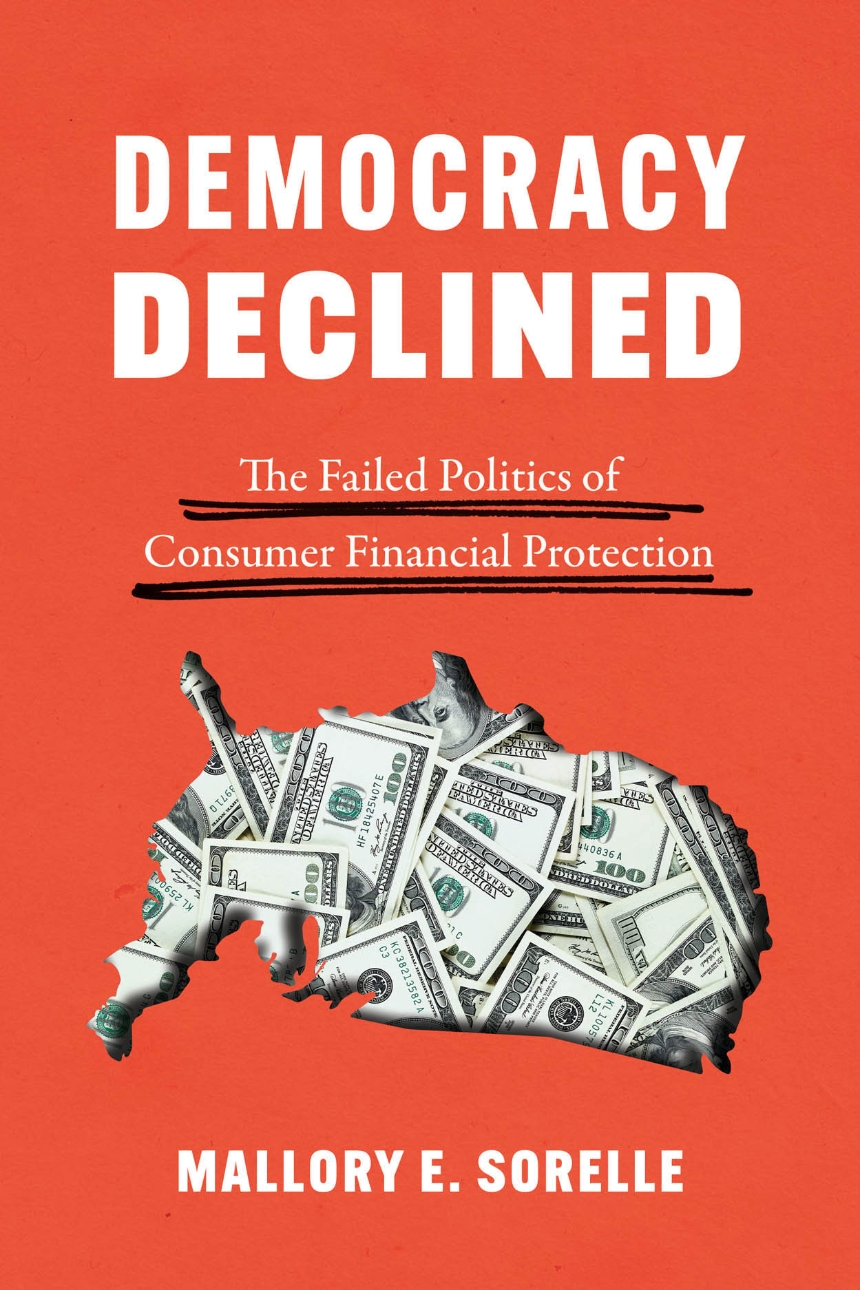Democracy Declined
The Failed Politics of Consumer Financial Protection
9780226711799
9780226711652
9780226711829
Democracy Declined
The Failed Politics of Consumer Financial Protection
As Elizabeth Warren memorably wrote, “It is impossible to buy a toaster that has a one-in-five chance of bursting into flames and burning down your house. But it is possible to refinance an existing home with a mortgage that has the same one-in-five chance of putting the family out on the street.” More than a century after the government embraced credit to fuel the American economy, consumer financial protections in the increasingly complex financial system still place the onus on individuals to sift through fine print for assurance that they are not vulnerable to predatory lending and other pitfalls of consumer financing and growing debt.
In Democracy Declined, Mallory E. SoRelle argues that the failure of federal policy makers to curb risky practices can be explained by the evolution of consumer finance policies aimed at encouraging easy credit in part by foregoing more stringent regulation. Furthermore, SoRelle explains how angry borrowers’ experiences with these policies teach them to focus their attention primarily on banks and lenders instead of demanding that lawmakers address predatory behavior. As a result, advocacy groups have been mostly unsuccessful in mobilizing borrowers in support of stronger consumer financial protections. The absence of safeguards on consumer financing is particularly dangerous because the consequences extend well beyond harm to individuals—they threaten the stability of entire economies. SoRelle identifies pathways to mitigate these potentially disastrous consequences through greater public participation.
In Democracy Declined, Mallory E. SoRelle argues that the failure of federal policy makers to curb risky practices can be explained by the evolution of consumer finance policies aimed at encouraging easy credit in part by foregoing more stringent regulation. Furthermore, SoRelle explains how angry borrowers’ experiences with these policies teach them to focus their attention primarily on banks and lenders instead of demanding that lawmakers address predatory behavior. As a result, advocacy groups have been mostly unsuccessful in mobilizing borrowers in support of stronger consumer financial protections. The absence of safeguards on consumer financing is particularly dangerous because the consequences extend well beyond harm to individuals—they threaten the stability of entire economies. SoRelle identifies pathways to mitigate these potentially disastrous consequences through greater public participation.
248 pages | 72 line drawings, 19 tables | 6 x 9 | © 2020
Chicago Studies in American Politics
Political Science: American Government and Politics, Public Policy
Reviews
Table of Contents
List of Abbreviations
1. Democracy Declined: The Failed Politics of Consumer Financial Protection
2. Full Disclosure: Building the U.S. Political Economy of Credit
3. “Storming Mad” but Staying Home: Depoliticizing the American Borrower
4. The “Horseless Headmen”: Consumer Groups and the Challenge of Political Mobilization
5. Democratization and Its Discontents: Demobilizing Marginalized Borrowers
6. Race to the Bottom: Administrative Rulemaking in the Political Economy of Credit
7. A New Lease? The Uncertain Political Future of Consumer Financial Protection
Acknowledgments
Data Appendix
Notes
References
Index
Data Appendix
Notes
References
Index
